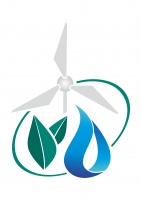Comparison of practices
| Название практики | Restoration of irrigation infrastructure in mountainous regions of Kyrgyzstan | Watering of vegetable crops based on the method of mist sprinkling irrigation |
|---|---|---|
| Category | Water resources | Water resources |
| Tool | Restoration of water management infrastructure | |
| Field of application | • Use of water resources |
|
| Usability of practice for adaptation to climate change | Moderate | Moderate |
| Implemented by | Mountain Societies Development Support Programme Kyrgyzstan (MSDSP KG) on the initiative of Aga Khan Foundation |
Kazakh National Agriculture University |
| Used by |
Country: Kyrgyzstan Province: Osh Region District: Nookat District |
Country: Kazakhstan Province: Almaty region District: Karasay District |
| Local specifics | The northeastern part of Osh Region lies in the Tien Shan spurs (Fergana Range) with the Pamir-Altai Mountains in the south and west (Turkestan, Alai, Trans-Alai (Lenin Peak) Ridges. The climate in the region is sharp continental. The Kyzyl-Suu, Ak-Buura and Kara Darya are the largest rivers in the area used for irrigation. |
Foothill zone in southeastern Kazakhstan, dark-chestnut and middle loamy soils |
| Practice usage period |
Start date: 01.01.2013 End date: 31.12.2016 |
Start date: 01.01.2014 End date: 31.12.2016 |
| Problem solved through this practice | Conflicts due to disputes over water resources and pastures |
Irrigation-associated soil erosion, low efficiency of applied watering techniques, poor phytosanitary condition of land used for vegetable growing |
| Tools used in the practice | Repair works to restore irrigation networks and infrastructure |
Technique and technology of mist sprinkling irrigation |
| Description of the practice and its results | Disputes over water resources and pastures can lead to conflicts, in particular among the communities living in border zones in the Fergana Valley. Every year, this urgent issue gains even more relevance as - according to expert forecasts – by 2020 Kyrgyzstan’s population may reach 7 mln 70% of which will live in rural communities. Actions: The project to rehabilitate irrigation canals aimed to improve access to water resources and pastures for local residents. The project also promoted introduction of equal-right practices in the sphere of water resources and pastures management among local population. All project actions targeted the improvement of living conditions of local residents and decreasing tensions. Results: On June 8, 2016, Aga Khan Foundation (AKF) and Aga Khan Development Network (AKDN) held the ceremonial opening of 5 repaired irrigation canals in Nookat District of Osh Region. Repair works to rehabilitate the irrigation canals were co-funded by Nookat District Water Management Administration, ajyl aimaks (Kyrg. rural local governance bodies) and local residents themselves. Financial and economic:
Environmental: The condition of over 4,000 ha (irrigated land) improved. Technical results: The total length of all repaired irrigation canals exceeded 10,900 meters. Social results:
|
Actions: A sprinkler (artificial rain irrigation) system installed consisting of 50 mm diameter polyethylene pipes assembled from 10-12 meter segments (5022 SD sprinkler; 3.5 bar pressure; 3.5 mm nozzles; water consumption of 0.87 m3/hour; water distribution area per 1 sprinkler – 12 m). Results: Financial and economic: Technical: |
| Lessons learnt and recommendations made | Lessons learnt: Repair and restoration of irrigation infrastructure facilitated the improvement of living conditions among local population, decreased tensions and disputes associated with water and pasture use in border zones of the Fergana Valley, and enhanced farmer welfare. Recommendations: The practice yielded positive outcomes and is recommended for further scaling-up to improve the welfare and ensure sustainable development of mountain communities in border zones. |
Lessons learnt: Recommendations:
|
| Source of practice | Foreign tools (transfer of foreign experience) |
• Domestic tools (outcomes of research by domestic R&D organizations), |
| Readiness for implementation |
1. Cost of implementation: High 2. Approximate cost of investment per 1 ha: 3. O&M costs: High 4. Expert support: Not needed |
1. Cost of implementation: High 2. Approximate cost of investment per 1 ha: 3. O&M costs: High 4. Expert support: Not needed |
| Brief information on the project | Project title: Improving infrastructure and building capacity of relevant local institutes on effective management of water and pasture resources. Project duration: 2013-2016. Project goal and objectives: enhance welfare and ensure sustainable development of mountain communities, prevent conflicts, facilitate stability and security of using natural resources in border zones. Scale of implementation and project beneficiaries: populations of Nookat and Aravan Districts, town of Kyzyl-Kiya. Project implementer: Mountain Societies Development Support Programme Kyrgyzstan (MSDSP KG). |
|
| Funding source | Aga Khan Foundation and the UK Embassy in Kyrgyzstan | Ministry of Agriculture of the Republic of Kazakhstan |
| Information sources | Mountain Partnership Member News (www.ekois.net) |
The PhD thesis “Efficiency of mist (sprinkler) irriga-tion technology for vegetable crops in southeastern Kazakhstan” describing a vegetable (cabbage, carrots, sweet pepper) cultivation technology based on fine sprinkling irrigation developed for the first time for soil and climatic conditions of foothill zone in southeastern Kazakhstan, including an optimal mode of vegetables irrigation via fine overhead sprinkler-based irrigation was developed, as well as analyzing the effects of sprinkler irrigation on biomass formation and crops capacity. |
| Contacts of a person, who filled this form | SIC ICWC |
SIC ICWC |
| Form submission date | 18.05.2018 | 29.03.2018 |




